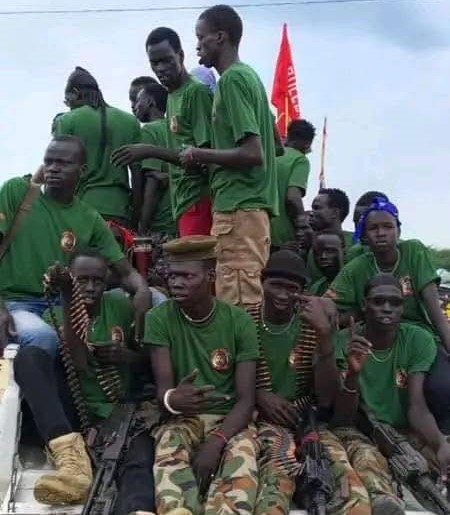Policy analysts and civil society leaders have cautioned the Government of South Sudan against using military force to suppress the Red Belt group in Jonglei State, warning that a crackdown could trigger widespread civilian suffering and further destabilise the region.
Their comments follow remarks by the Chief of Defence Forces, Gen. Paul Nang Majok, who last week described the Red Belt as a serious national security threat and vowed decisive action to disarm the group.
Bol Deng Bol, a prominent civil society activist from Jonglei State, stated that the government’s decision to label the Red Belt a threat to national security was premature and dangerous.
“We had earlier urged the authorities not to outlaw or label the Red Belt as rebels immediately but to first engage them in dialogue,” Bol said. “Now that the government seems to be preparing for confrontation, our concern is for the civilians, children, women, and vulnerable people who will suffer most if fighting breaks out.”
He emphasised that the Red Belt members are young people who live within civilian communities, not a separate armed force stationed apart from the population.
“The Red Belt is not just rebel by name,” he added. “They live and work among civilians. Any attack on them will inevitably affect innocent people in their homes and villages.”
Bol cautioned the government against repeating past military tactics, such as the aerial bombardments in Upper Nile State that reportedly caused civilian casualties.
“No citizen should ever be subjected to that again,” he said. “There are other ways to deal with armed groups, ways that do not directly harm communities.”
For his part, James Boboya Edmund, a Juba-based policy analyst, said the army’s desire to secure borders and restore peace is understandable, but warned that the lack of a national dialogue strategy risks deepening community mistrust.
“The declaration by the defence chief is within his mandate,” he stated. “But what the government has failed to do is design a strategy of dialogue with community armed groups and vigilantes. Without such a plan, these groups may resort to self-defence and cause more havoc.”
He argued that insecurity in South Sudan stems from weak institutions, poor service delivery, and widespread poverty, which drive communities to arm themselves.
“If you go to areas where groups like the Red Belt or White Army operate, there are no services, no electricity, no communication,” he explained. “People live in ignorance and poverty, which fuels anxiety and hopelessness. Development and dialogue must go hand in hand.”
Boboya also called for a long-term vision that addresses the root causes of conflict through youth education, vocational training, and economic empowerment.
“We need a national conversation about the future of South Sudan,” he said. “If young people see opportunity and hope, they will put down guns and help build their communities.”
Both Bol and Boboya agreed that sustainable peace in Jonglei and other conflict-prone states will depend not on the strength of the army’s response but on the government’s ability to win the trust of its citizens through dialogue, protection, and inclusive development.




